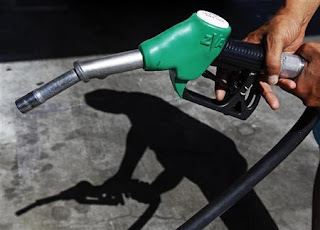Kenya inflation seen down in October, fuel prices a worry
Kenya's year-on-year inflation is expected to fall for the 11th month running in October, helped by a better harvest easing food prices but offset to some extent by rising fuel costs.
Despite the signs that inflation could be close to bottoming out, analysts think the central bank has scope to keep easing interest rates as attention shifts to supporting economic growth.
Eight out of 11 analysts polled by Reuters predicted inflation would decline in October, with a median estimate of 4.88 percent, down from 5.32 percent in September.
Forecasts ranged from 3.60 percent to 6.00 percent. The data is due on October 31.
"Inflation is nearing the bottom in the current cycle. While fuel price increases may dampen the downward pressure on inflation, low food inflation is still likely to over-ride them," said Mbiyo Phumelele, head of macroeconomic research at CFC Stanbic Bank.
Kenya's Energy Regulatory Commission raised pump prices for the second straight month during its monthly review in mid-October, citing rising crude oil prices and an unfavourable exchange rate.
Fuel prices have a big effect on inflation in east Africa's largest economy, which depends largely on petrol and diesel imports for transport, power production and agriculture. Kerosene is used in many homes for lighting and cooking.
Ronald Lugalia, an analyst at Afrika Investment Bank, said good harvests since August should keep food prices down and the prevailing short rains could boost hydro-electricity production.
The food and non-alcoholic drinks index carries a 36 percent weight in the basket of goods used to measure inflation.
Some analysts said this month's inflation could also be flattered by comparison with a high rate last year.
"The low base effect versus last year is also still in play. But I think this effect will begin to ebb soon," said Aly Khan Satchu, a Nairobi-based independent trader and analyst.
Inflation peaked at just under 20 percent last November.
The central bank cut its key interest rate by a total 500 basis points to 13 percent in the last two policy meetings.
Economic growth slowed to 3.3 percent in the second quarter of 2012 from 3.5 percent in the year ago period, the slowest quarterly growth since the fourth quarter of 2009.
"While money supply growth picked up somewhat in the third quarter, only a marginal share of the Central Bank of Kenya's monetary easing has so far been passed on to bank clients through lower interest rates," said Mark Bohlund, senior Economist Sub-Saharan Africa.
By Kevin Mwanza
NAIROBI (Reuters)
Despite the signs that inflation could be close to bottoming out, analysts think the central bank has scope to keep easing interest rates as attention shifts to supporting economic growth.
Eight out of 11 analysts polled by Reuters predicted inflation would decline in October, with a median estimate of 4.88 percent, down from 5.32 percent in September.
Forecasts ranged from 3.60 percent to 6.00 percent. The data is due on October 31.
"Inflation is nearing the bottom in the current cycle. While fuel price increases may dampen the downward pressure on inflation, low food inflation is still likely to over-ride them," said Mbiyo Phumelele, head of macroeconomic research at CFC Stanbic Bank.
Kenya's Energy Regulatory Commission raised pump prices for the second straight month during its monthly review in mid-October, citing rising crude oil prices and an unfavourable exchange rate.
Fuel prices have a big effect on inflation in east Africa's largest economy, which depends largely on petrol and diesel imports for transport, power production and agriculture. Kerosene is used in many homes for lighting and cooking.
Ronald Lugalia, an analyst at Afrika Investment Bank, said good harvests since August should keep food prices down and the prevailing short rains could boost hydro-electricity production.
The food and non-alcoholic drinks index carries a 36 percent weight in the basket of goods used to measure inflation.
Some analysts said this month's inflation could also be flattered by comparison with a high rate last year.
"The low base effect versus last year is also still in play. But I think this effect will begin to ebb soon," said Aly Khan Satchu, a Nairobi-based independent trader and analyst.
Inflation peaked at just under 20 percent last November.
The central bank cut its key interest rate by a total 500 basis points to 13 percent in the last two policy meetings.
Economic growth slowed to 3.3 percent in the second quarter of 2012 from 3.5 percent in the year ago period, the slowest quarterly growth since the fourth quarter of 2009.
"While money supply growth picked up somewhat in the third quarter, only a marginal share of the Central Bank of Kenya's monetary easing has so far been passed on to bank clients through lower interest rates," said Mark Bohlund, senior Economist Sub-Saharan Africa.
By Kevin Mwanza
NAIROBI (Reuters)




Comments
Post a Comment